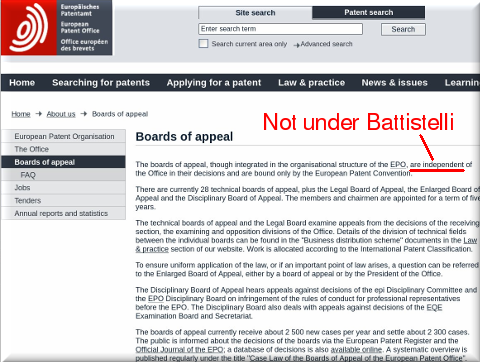

THE latest bill (among several) which claims to be tackling the patent chaos in the United States was covered by the EFF the other day. To quote: "The Trade Protection Not Troll Protection Act is the newest of several patent reform bills introduced in Congress this session. Introduced by Reps. Tony Cardenaz (D-CA) and Blake Farenthold (R-TX), H.R. 4829 addresses patent litigation’s lesser known forum, the United States International Trade Commission (ITC), a federal agency that investigates unfair trade practices."
They are still dodging reform revolving around patent scope, neglecting to see (maybe not deliberately) that many patent trolls rely on software patents. As many as three quarters of them attack legitimate companies using software patents, which means that eliminating software patents would almost eliminate the trolls (among other patent aggressors). Companies such as Microsoft and IBM want politicians distracted by and thus obsessed with "trolls", hence leaving the large patent aggressors (hardly any different from trolls) untouched.
"As many as three quarters of them attack legitimate companies using software patents, which means that eliminating software patents would almost eliminate the trolls (among other patent aggressors)."Alice has changed a lot since the SCOTUS ruling on the case. Software patents should nowadays be assumed invalid until/unless proven otherwise by something not as corruptible as a for-profit system (patent laywers or patent offices) but a pro-justice system (courts and TTAB or PTAB [1, 2]). We were reminded of that in light of this new post euphemistically titled "Presumption Against Improper Inventorship". "Here," says Patently-O, "the Federal Circuit reviewed the evidence presented and agreed that it was ambiguous at best. As such it was insufficient to overcome the ‘heavy burden.’"
What we have here is justice (courts) versus a production line (the greed-motivated USPTO). Another Patently-O post was titled "Battles between the PTO and Courts" (regarding the USPTO, as it relates to trademarks as well). To quote: "Back in the district court, Alabama then asked for and received a new order from the district court judge — this time expressly ordering the USPTO to vacate its prior determination. The court wrote: “In June 2015, the TTAB essentially (and inexplicably) treated the court’s Order as a request, and issued a decision refusing to comply with this court’s Order.”"
What's noteworthy here is the divergence or the difference between a court's position and the position of those who profit from just accepting everything (rejections discourage further applications or high application frequency). In the case of the EPO, for instance, Battistelli hates judges so much that he illegally banned one of them from going to work (an act legalised by the clueless Battistelli only after the act) and now threatens to eliminate the boards. They stand in the way of his "production" propaganda [1, 2, 3] because they keep highlighting errors and intimidate potential applicants (by simply doing their job, which is assuring patent quality). ⬆